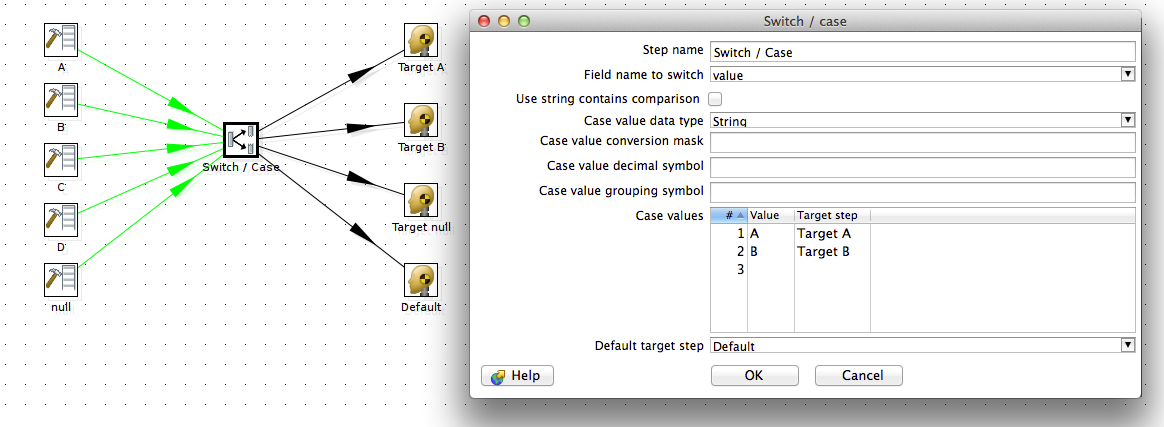Switch-Case
![]() PLEASE NOTE: This documentation applies to an earlier version. For the most recent documentation, visit the Pentaho Enterprise Edition documentation site.
PLEASE NOTE: This documentation applies to an earlier version. For the most recent documentation, visit the Pentaho Enterprise Edition documentation site.
Description
What this step does is implement the Switch/Case statement found in popular programming languages like Java.
In our case we route rows of data to one or more target steps based on the value encountered in a certain field.
Version
This step was first introduced in version 3.1.0-RC1 (trunk revision 7777, PDI-1217)
Options
Option | Description |
|---|---|
Step name | The name that uniquely identifies the step. |
Field name to switch | The field name that contains the value to use as a bases for the row routing. |
Use string contains comparison | If checked, the comparison will be true if the value is found anywhere in the field being tested. Unchecked and the value has to exactly match the field. |
Case value data type | The data type of the values specified in this dialog |
Case value conversion mask | The conversion mask of the values specified in this dialog (numeric / date values) |
Case value decimal symbol | The decimal symbol of the values specified in this dialog (numeric values) |
Case value grouping symbol | The grouping symbol of the values specified in this dialog (numeric values) |
Case values | Here you can specify a value-target step pair, one per row. |
Default target step | All the rows that don't match any of the case values above are sent to this target step. |
Example
A sample transformation demonstrating the capabilities of this step is available in the distribution package (in samples folder)
samples/transformations/Switch-Case - basic sample.ktr
Metadata Injection Support (7.x and later)
All fields of this step support metadata injection. You can use this step with ETL Metadata Injection to pass metadata to your transformation at runtime.
